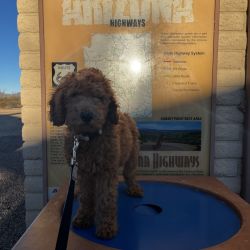Origins and Temperament
The Boerboel is a powerful and imposing breed with roots stemming from South Africa. These dogs were bred as protectors, combining strength with a keen sense of loyalty to their families. Their temperament leans towards being calm yet assertive, requiring a handler who can confidently establish themselves as the pack leader. While traveling, their protective nature means they may be wary of strangers; therefore, a Boerboel necessitates a travel plan that considers their need for security and familiar companionship.
Size and Physical Needs
Typically tipping the scales between 110-200 pounds, Boerboels are undeniably a large breed. Their size and muscular build entail a substantial amount of space for comfort during transportation. Exercise is integral to their well-being, so a Boerboel requires enough room to stretch and move around. Ensuring they have a well-ventilated space is crucial to prevent overheating and stress during transit given their dense, muscular physique.
Common Health Considerations
Boerboels, like many large breeds, are prone to hip and elbow dysplasia. Ensuring they have a smooth and stable journey is essential to avoid discomfort or injury. Health certification and documentation of up-to-date vaccinations are requisite for travel. Carriers should be informed of any pre-existing conditions and a Boerboel should be assessed by a vet prior to travel, to identify any potential concerns and enable preventative measures for a safe trip.
















